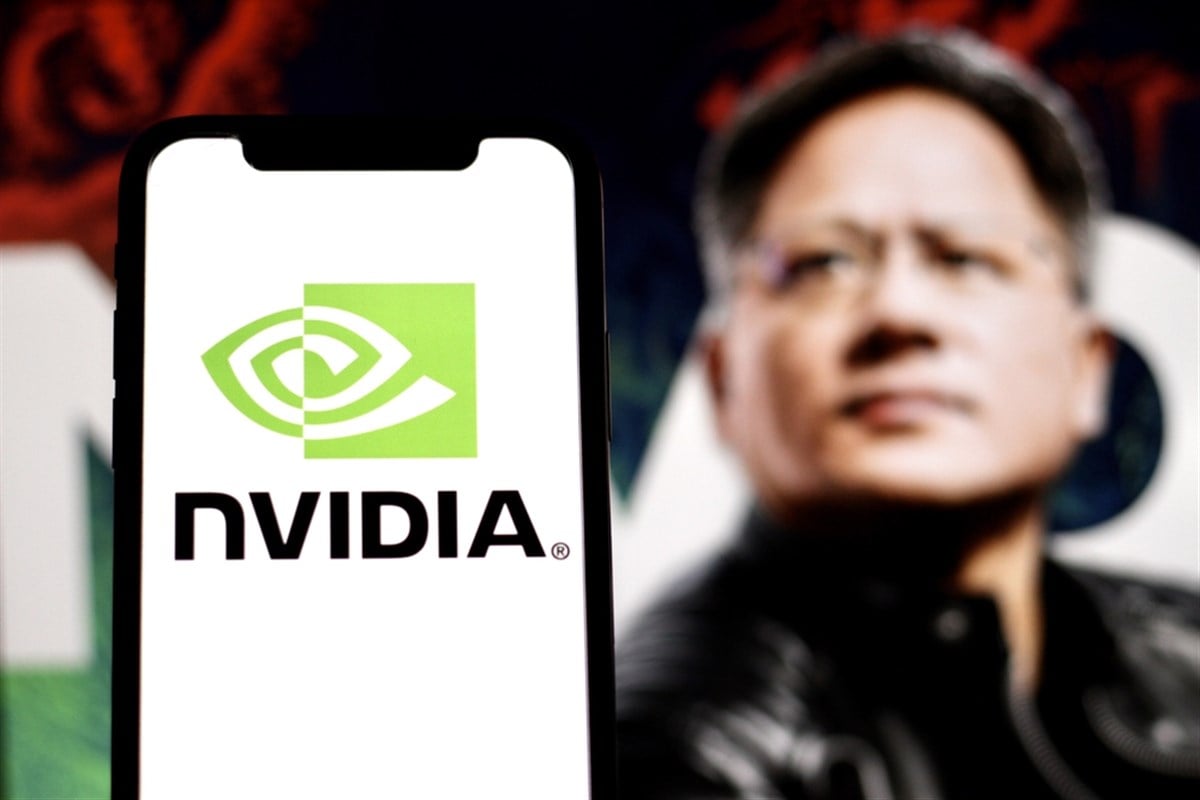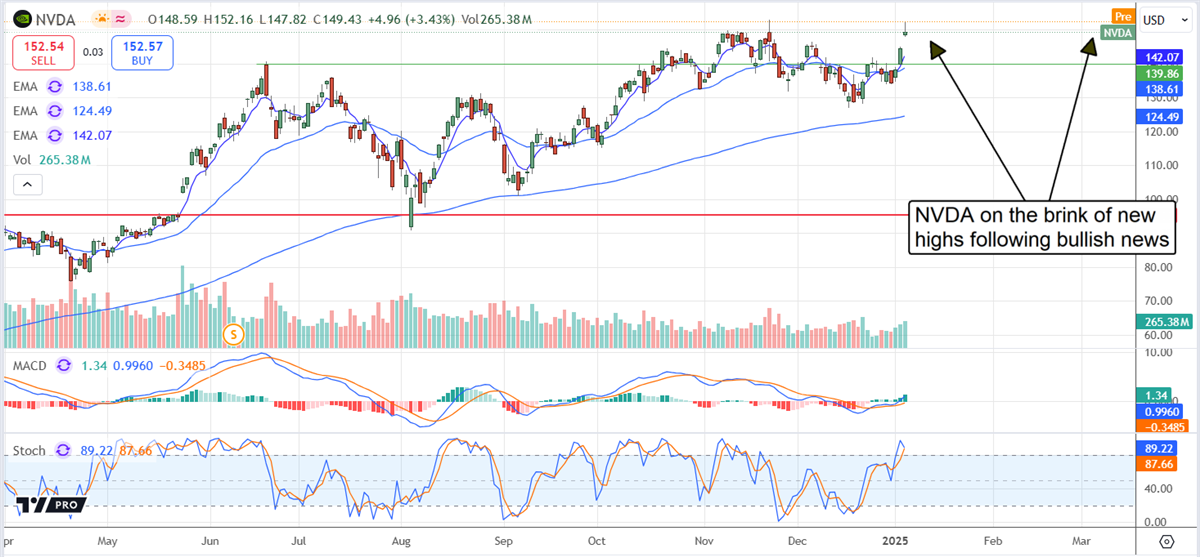
NVIDIA (NASDAQ: NVDA) is still the most important stock after two-plus years of dominating the stock market. Its GPU technology unlocked the door to AI, and now NVIDIA is capitalizing on it using a full-stack method. The CUDA framework is central to the advances that now include a new platform for robotics, universal architecture for robotics, and AI for PCs. The technology includes advances in the RTX line, the DRIVE platform, and DIGITS, a program putting AI into PCs, the end-game for AI.
Data centers rule the AI world now, but eventually, that technology will fit into the palm of your hand; NVIDIA is well-positioned to do it. Demand for its semiconductor products, including the now-in-full-production Blackwell, will remain high between then and now.
NVIDIA Disrupts AI-for-PC and Autonomous Driving Outlook
Among the critical details is the push into autonomous driving. The company revealed the DRIVE Hyperion AV platform, an end-to-end solution for autonomous driving built on the Thor AGX SoC. The platform and other AV/robotic advances, including computer vision, are already being used by companies like Uber (NYSE: UBER) and Toyota (NYSE: TM). Toyota inked a partnership with NVIDIA to develop next-gen autonomous vehicles, opening the door to expanding revenue streams and threatening companies like Tesla (NASDAQ: TSLA).
Tesla CEO Elon Musk is banking on a company evolution centered on autonomous driving and Cybercabs that NVIDIA may disrupt. Other companies at risk from these developments include Advanced Micro Devices (NASDAQ: AMD) and Ambarella (NASDAQ: AMBA), which have stakes in AI-for-PCs and computer vision.
The initial analysts' response to the news is good. MarketBeat tracked commentary from two major firms within the first few hours of the CES keynote address. Those are a reiterated rating and price target from Benchmark and comments from Wedbush analyst Dan Ives, who says he is more bullish than ever.
He believes NVIDIA is building on its enormous technological lead, expanding into new verticals, and opening the door to a $5 trillion valuation that could be reached within 18 months. That’s a potential gain of 65% in market cap in under two years for a company that has ballooned in size over the last two. In this scenario, the Magnificent Seven will become just NVIDIA, the most valuable company on the planet.
The reiterated price target from Benchmark aligns with the revision trend, increasing the consensus price target over time. In early January, the consensus was near $165, a gain of 10% from critical resistance targets, while the high-end range added another 2000 basis points to it.
The sentiment trend will likely strengthen over the next few months, so the high-end range and consensus target will continue rising and add lift to the market this year. Reasons to believe the estimates will continue rising include the slate of new products expected to hit the market in Q1 and the ongoing expansion of data center capacity globally.
NVIDIA’s Revenue and Earnings Forecasts Are Too Low
The consensus outlook for NVIDIA results is robust. The analysts expect growth to slow in Q4 and again in F202,6, but this is due to the law of large numbers. The company will grow revenue by 72% or more in Q4 and 50% in 2025, down from the triple-digit pace set last year and the 80% growth in the previous quarter, but the dollar value is important today.
The 50% gain in 2025 is worth 400% of the 2021 revenue in dollars, with full-year 2025 revenue equal to nearly 12x the 2021 take. The higher revenue levels are sustainable.
The surge in revenue drives a higher margin and cash flow, as seen in the balance sheet details. The company’s cash hoard grew by 50% to over $38 billion, leaving it in a net-cash position relative to total liability and capable of sustaining and increasing its capital return.
NVIDIA’s stock price reacted favorably to the news, gaining over 2% in early pre-market trading. The move aligned the market with an all-time high, with bullish indicators and market tailwinds supporting it. The all-time high is the critical resistance point; a move above it will lead to another rally that could be strong. FOMO, or fear of missing out, is possible given the market state and improving outlook for NVIDIA’s revenue and earnings.


